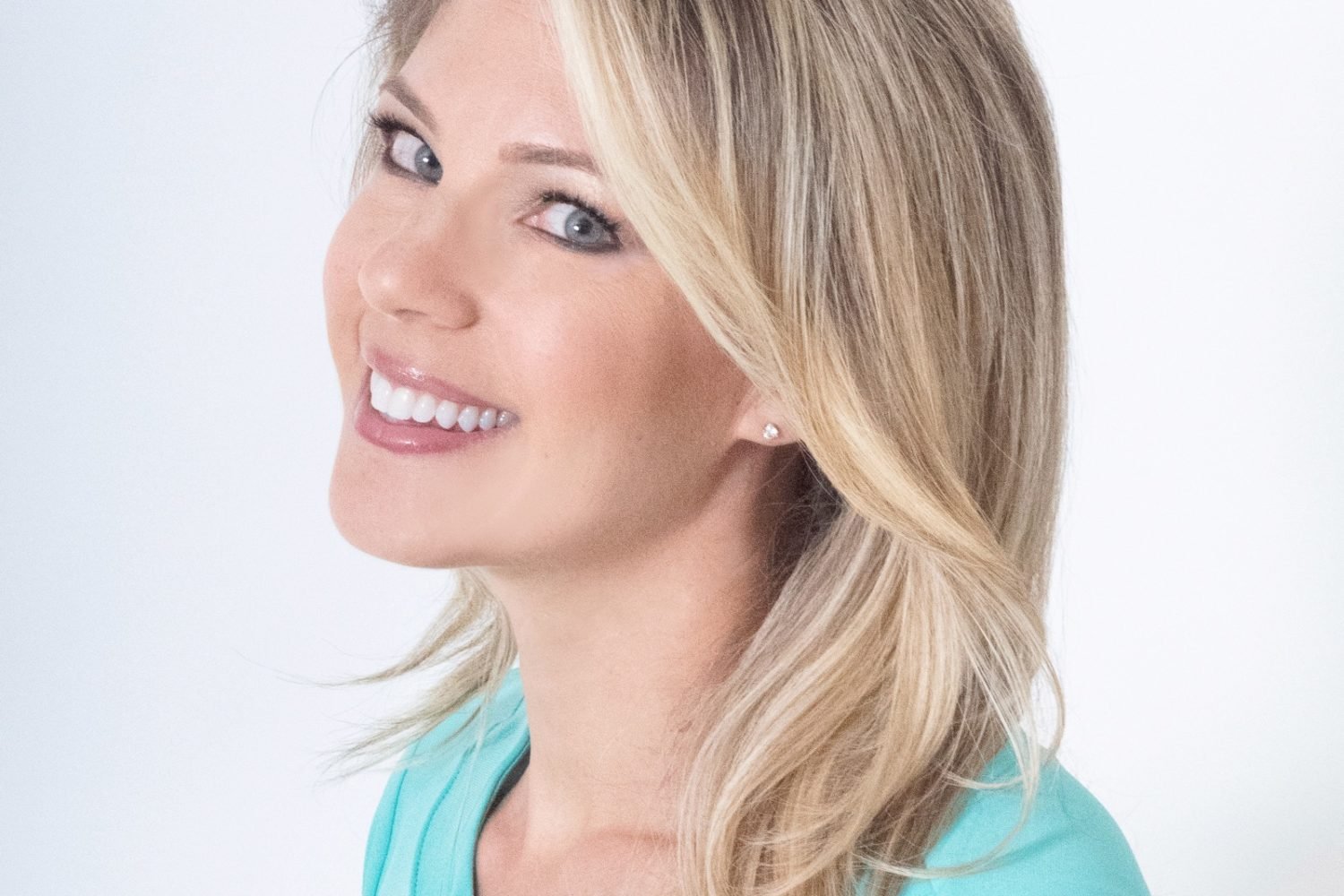After Montgomery County mother Christine Baskin and her husband decided to send their son to private school for kindergarten, they started doing research on the choices. They gained impressions of the schools they looked at—the culture, philosophy, and community at each—but weren’t sure their perceptions were right. They decided to call in a professional, an education consultant knowledgeable about the Washington area’s elementary school landscape, to help them navigate the admissions process and what can seem like a tricky system.
“She was a good sounding board,” Baskin says of the DC consultant her family hired. “Even though we learned a lot on our own, it was helpful to talk with someone who knew the schools and could give us insights that we couldn’t get from reading a brochure or attending an open house.”
Less than a generation ago, parents only had to worry about getting their children to the bus on time in the morning, confident that their neighborhood school would provide everything needed to go to college and succeed in life.
But in this age of Baby Einstein videos, Mommy & Me classes, and competitive jockeying for preschool slots, parents are looking for any extra benefit they can provide to get their child on the right track. And, it seems, it’s never too early to start.
Educational consultants have been around for decades to advise parents on where their children should go to high school and college. But increasing numbers of families are turning to these experts to help them find the right elementary school. These consultants offer a range of advice and services. They help handle the paperwork involved in the admissions process; provide insight into the character, mission, and environment of schools; and help families determine which schools are the best match for their child.
“We’re seeing an arms race in higher education, with more guidebooks and school rankings adding to the pressure of the selection process. And that has been filtering down to even the prekindergarten level,” says Connie Gores of Randolph-Macon Woman’s College in Lynchburg.
Jen Singer, author of 14 Hours ’Til Bedtime, chalks up the increasing use of consultants in early childhood to what she calls the “professionalization” of parenting: “Twenty-first-century parents are looking more and more to experts to help give their kids an edge over their peers. It’s hard not to get caught up in the kid consulting frenzy. After all, who doesn’t want their kid to have the best shot at the best schools and later the best jobs?”
Others say the lack of community networks in our lives has led to more reliance on outside experts in such decision-making.
“The fact that parents are turning to educational consultants for their very young children is less about type-A parents seeking “A”-list schools and is more a reflection of how isolating being a parent can be today,” says Mary Stewart, a DC marketing consultant. “Fifty years ago, you might have asked a neighbor for advice over the backyard fence. Today, more and more frequently, nobody’s home.”
ONE WASHINGTON mother says that soon after her daughter started kindergarten at a small private school last fall, three different parents asked her which consultant she had used: “I thought, ‘consultant? Was I supposed to use a consultant for kindergarten?’ ”
A growing number of parents think so.
“The number of those working with this age group has been increasing at a very steep rate over the last five years,” says Mark Sklarow, executive director of the Independent Educational Consultants Association in Fairfax.
School admissions officers say most parents who apply to private schools for their children still do so without the advice of consultants. Anne Gutman, director of admissions at National Presbyterian School, says only about 5 percent of families who apply there, especially for the early elementary grades, use admissions consultants. But she and others note the number is probably higher because some families keep their use of a consultant secret.
The perception is that only the most competitive or obsessive parents would hire a consultant for help with admission to an elementary school. And many of the parents interviewed for this story, worried about how their use of a consultant would be perceived, agreed to talk only if their names were not used. But consultants say families thinking about private schools should approach the decision as they would any other major family or household issue.
“In a way, it’s like hiring a plumber,” says Susan Jones of Dunbar Educational Consultants, which has an office in Washington. “If you don’t know how to fix a toilet, you call a plumber for help. If you need assistance navigating through the admissions process, use an educational consultant.”
One Chevy Chase father who has a first-grader at the Primary Day School and a third-grader at Landon School, thought he and his wife, both dentists, could easily manage the admissions process. But the father says he discovered a “whole subculture” to the private-school scene for which he and his wife felt unprepared. He believes it would have been shortsighted to invest in years of private-school tuition without spending a comparatively small amount to get expert advice.
The admissions process can, in fact, be daunting. Some schools require student testing, observed “play dates” of toddlers, multiple recommendations from nursery-school teachers and directors, and essays by the parents about the unique qualities of the child and family and ways in which they would complement that school community.
“I’m already feeling overwhelmed at the thought of scheduling all the school visits, play dates, and the fact that my son has to go through testing,” says a Georgetown mother of a four-year-old boy who hired a consultant a year ago.
The consultant shocked her by telling her to hold her son back a year. “She told us not to even bother applying to pre-K for our son last year because he would not get in as a result of his late-August birthday,” says the Georgetown mom. “Our son would be competing for slots with children almost a full year older than he was.”
She followed the consultant’s advice.
An Arlington couple turned to a consultant after making what they felt was a bad decision on their own. They had paid the first semester’s tuition and attended a new-parent reception when they started feeling the private school they’d selected for their then-four-year-old daughter was somehow wrong.
They hired a consultant to help them sort out what it was they were looking for. “Talking with our consultant helped us to organize our thoughts and listen to our hearts to hear the common threads that kept coming up again and again—a value-centered school, a commitment to service and diversity, and a down-to-earth parent population,” said the mother. Before the school year started, they moved their child to St. Stephen’s & St. Agnes School in Alexandria.
Clare Anderson, a consultant with the School Counseling Group in the District, says she’s very candid “about the cultures and dynamics of the various school options to determine which ones would be best suited to them as a family, not just for their child.”
So will a consultant help get little Jessica into Sidwell Friends or little Henry into the Potomac School?
Some consultants are reluctant to quantify whether a child’s odds of getting admitted to their school of choice are better if they use their services. But Jones of Dunbar Educational Consultants says that 85 percent of its clients get into their first- or second-choice school. She attributes that success to the focus on guiding parents to apply to the schools that are right for their kids and not just the elite schools they believe will be the ticket to the best colleges.
Gutman of National Presbyterian School agrees that consultants—good ones—can guide families to schools that are right for them. But she says a report written by a consultant is just an “additional piece of information” about that child and doesn’t necessarily give the applicant a leg up.
In fact, admissions officers and consultants discourage the notion that decisions are based on such contacts and intervention.
Georgia Irvin, the grande dame of Washington education consultants and former admissions director at Sidwell Friends School, says even with her connections, she “can’t and won’t” guarantee clients that she can get their child into Sidwell or any other school. “When I was the director of admissions” at Sidwell, she says, “I couldn’t get my neighbor’s child in!”
Still, an occasional phone call to the admissions office from a trusted consultant can help keep a child’s application on a school’s radar screen. Consultants often advise parents on which independent testers would work best with their son or daughter. And they can track a child’s application through the system or suggest ways to make an application stand out in a sea of overachieving kids.
Some area parents who have used consultants say they wouldn’t recommend it. One Washington mother said the consultant she hired met with her and her husband for an hour or so but spent less than five minutes with their son. Ultimately, they felt the consultant’s suggestions were off the mark.
Another area mom worked her way through several consultants in her effort to find an elementary school where her two children, with very different personalities and learning styles, would both thrive. She, too, was skeptical of the advice she was given.
One of the consultants told her she thought her children would do well at Maret or Georgetown Day School but that they would never get into either. After her children were accepted to both schools, the mother came away feeling that some consultants recommend parents apply to less-competitive schools to boost their performance numbers.
Consultants, like private schools, aren’t cheap. Prices depend on the consultant and the services chosen. A general one-time consult that lasts at least two hours can cost several hundred dollars. An ongoing relationship that involves compiling applications and following up with schools can cost several thousand dollars.
Even if parents hire an admissions consultant, they should not put the ultimate decision in that person’s hands, says Randy Plummer, head of Sheridan School in the District: “The recommendations can’t compare with the first-person experience parents gain by visiting each school personally.”
What To Look For in a Consultant
Not all consultants are alike in their approach. Like schools, each has his or her own attitude about the process. When looking for a consultant, ask questions that go beyond educational background. “Find out how much time a consultant spends with each child during the evaluation process and what information the consultant uses to assess a child and make school recommendations,” says Randy Plummer, head of Sheridan School.
Here are other ways to help find a consultant who is qualified and will work well with your family.
• Spend a few minutes on the phone with each consultant you’re considering to get a sense of whether they share your approach to the process.
• Ask if the consultant is accredited. An admissions consultant doesn’t need any particular education, training, or licensing to hang out a shingle. But there are professional associations that provide accreditation for those who have met certain criteria related to length of practice, frequency of school visits, and recommendations from others in the profession.
For a consultant to use the designation Certified Educational Planner, or CEP, he or she has to pass a board certification exam, have a master’s degree or its equivalent, stay current on school visits, and be evaluated every five years on continuing-education credits.
• Find out how often they visit the schools in their community, especially the ones you’re considering. It’s a good question to ask because schools’ curricula can change from year to year. By keeping current on schools, consultants can provide insights that parents don’t always get from an open house or a chat with the school’s director.
• Ask how they stay current on trends and research in education and what professional associations they belong to.
• Ask how often they work with children the same age as your child.
• Find out if they provide both one-time and ongoing consultation services. What comes with each type of arrangement, and what will it cost?

















